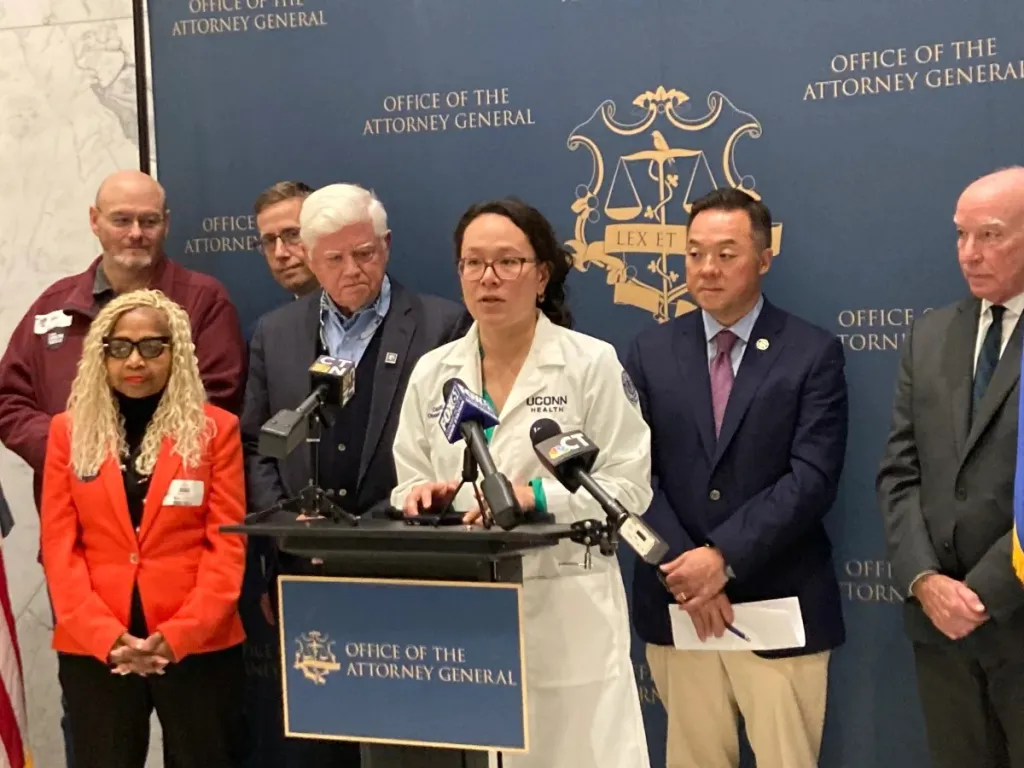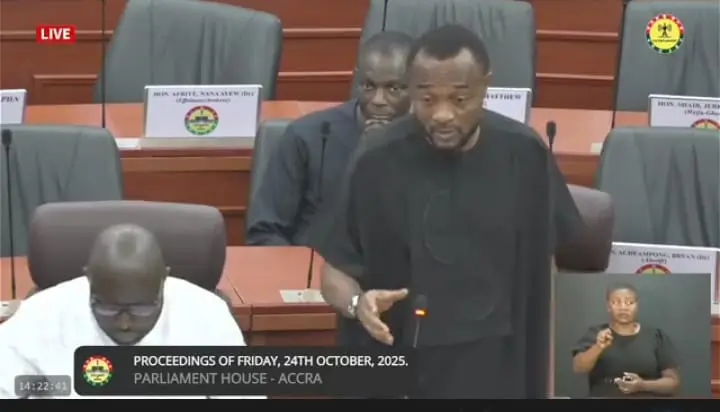Copyright Hartford Courant

Connecticut joined 20 states in filing a federal lawsuit Monday against U.S. Education Secretary Linda McMahon in response to a new rule from the Trump administration that could block certain nonprofit and government employees from eligibility for student loan forgiveness. Under the new rule, released Oct. 31, nonprofits that are considered to have a “substantial illegal purpose” could have their employees disqualified from what’s known as the Public Service Loan Forgiveness Program. The activities listed in the rule include “aiding and abetting violations of Federal immigration laws” and supplying children with puberty blockers or hormones for the purpose of transgender care. The federal Public Service Loan Forgiveness program, created in 2007, releases people who work for 10 years at a nonprofit or in government from their student loan obligations after they’ve made 120 monthly payments toward their borrowed amount. Eligible professions include public school teachers, social workers, emergency management workers, health care workers, employees at nonprofits and government workers. U.S. Rep. Joe Courtney, D-2nd District, said at a press conference in Hartford Monday that the program was created in a bipartisan effort to attract talented people to jobs that benefit the public but don’t pay a lot. ”People understood that when you have talented people in college coming out of school … public service might not be the most lucrative in terms of trying to deal with student loan debt,” Courtney said. Data from the U.S. Department of Education cited by the attorney general’s office showed that, as of July 2025, nearly 12,000 Connecticut residents have had loans forgiven through the program, and an additional 12,500 were still enrolled. In a March executive order, President Donald J. Trump said that “instead of alleviating worker shortages in necessary occupations, the PSLF Program has misdirected tax dollars into activist organizations that not only fail to serve the public interest, but actually harm our national security and American values, sometimes through criminal means.” Attorney General William Tong said at Monday’s press conference that he believed it wasn’t at all clear who could be disqualified from loan forgiveness under the rule, since the meaning of “substantial illegal purpose” was vague. Tong said be believes the Trump administration has a tendency to “move the goalposts” and could create “reasons that don’t make any sense” to deny eligibility to public servants. “Everybody has a target on their backs,” he said. The lawsuit, filed in U.S. District Court in Massachusetts, also highlights the phrase “substantial illegal purpose,” calling it vague, and alleges that the Trump administration has no authority to limit eligibility for a program that was created by Congress. “The only forms of ‘illegality’ named are a cherry-picked list of this Administration’s most disfavored groups and activities, including support for immigrants, gender-affirming care, diversity, equity and inclusion initiatives, and public protest,” the lawsuit reads. “The department seeks to chill the activity of public service employers by discouraging their employees from what it deems objectionable forms of public service.” Union leaders, Democratic politicians and government officials at the Monday event expressed concern the new rule might discourage people from pursuing public service. Cara Delaney, a professor of obstetrics and gynecology at the University of Connecticut health center, said she may not have been able to provide care in vulnerable communities without the prospect of student loan forgiveness. She has almost completed the 10 years necessary for her loans to be forgiven, she said, and she plans to continue her work in public service. “We take care of all patients that come through the door,” Delaney told the Connecticut Mirror. “We see them in the emergency room. We see them in the clinic. We see people who are gender diverse. We see people with all types of immigration status.” “There is definitely a fear,” she added. “The rule … is really ambiguous, and so we don’t really know where things are going to fall.” Emilia Otte is a reporter for the Connecticut Mirror. Copyright 2025 @ CT Mirror (ctmirror.org).



